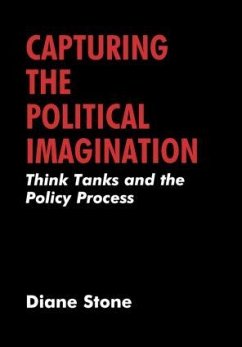Think tanks are proliferating. Although they operate independently of governments, many of these institutions, including the well-known Brookings Institution in the U.S. and the Institute for Economic Affairs in Britain, have considerable influence on political thinking and public policy. In this innovative work, Diane Stone develops several ideas about policy networks, epistemic communities and policy learning in relation to think tanks. Dr Stone argues that since think tanks are not involved in the details of policy implementation or the formal decision-making process, it is irrelevant to try and investigate their direct influence on policy. Instead it is necessary to look at how think tank scholars interact with decision-makers, and to examine the more subtle processes of agenda setting and policy entrepreneurship. While much has been written on the formal arenas of politics - executives, legislatures, elections and bureaucracies - this is the first book to uncover the vital but informal role played by think tanks in policy innovation and the diffusion of ideas among policy elites. By comparing British and American think tanks (both large and small) Diane Stone broadens our understanding of the causes and consequences of the growth of these organisations. She points out that American institutes benefit from far more generous foundation and corporate support, and that the institutional structure of the US government and the country's weak political party system provide a more fragmented and open environment for interaction between think tanks and officials with political power. The book concludes with valuable reference material including a comprehensive listing of major think tanksin the US and Britain.








